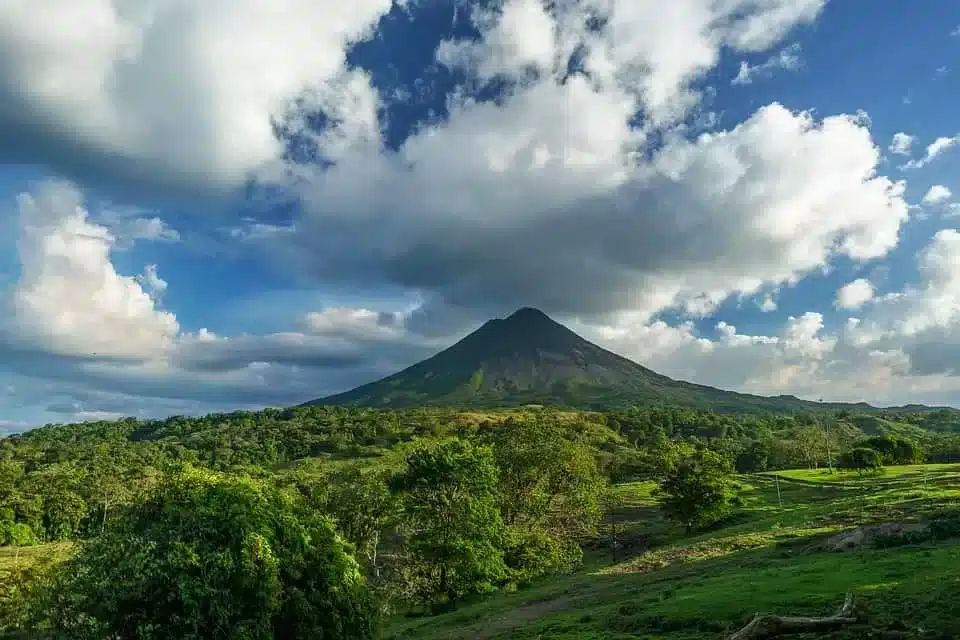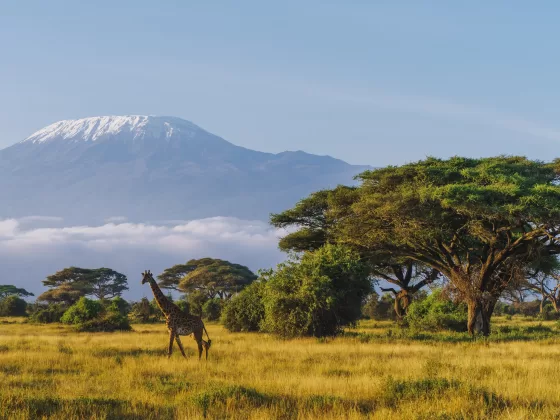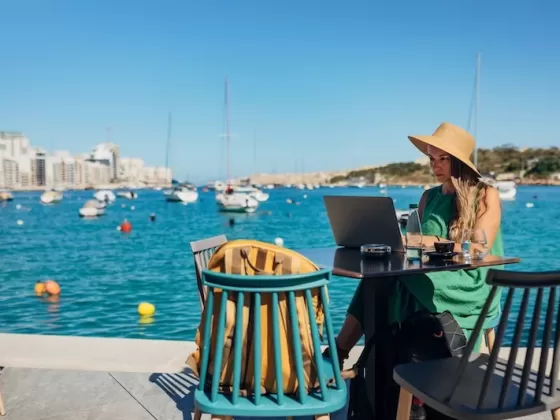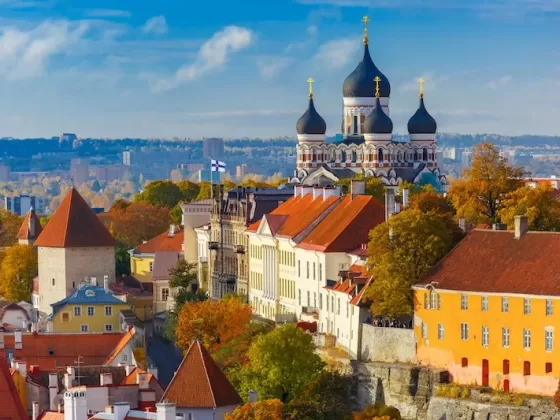Costa Rica, affectionately known as the “Rich Coast”, nestles between the Atlantic and Pacific Oceans in Central America. Known for its unparalleled biodiversity, lush rainforests, imposing volcanoes, pristine beaches, and wonderful coffee, this slice of paradise is a haven for travelers. Its natural beauty is awe-inspiring and its commitment to preserving this enchanting environment is laudable, with over 25% of the country designated as protected national parks and reserves.
Costa Rican culture is just as rich and vibrant as the landscape, with its diverse origins rooted in the Indigenous, Spanish, Afro-Caribbean, and Chinese influences that have helped shape it. The locals, known as “Ticos”, are renowned for their warm, inviting hospitality, and their approach to life, often encapsulated in the phrase “Pura Vida”, which translates to “pure life”. This phrase is more than just a common saying; it’s a lifestyle, reflecting the country’s laid-back, optimistic, and happy demeanor.
Yet, beyond the stunning vistas and vivacious culture, Costa Rica has attracted the interest of U.S. citizens for its high standard of living. The United Nations Development Programme consistently ranks Costa Rica as one of the highest in Latin America for Human Development Index (HDI), a measure of life expectancy, education, and per capita income indicators. As an icing on the cake, it’s also considered one of the safest countries in the region.
American retirees have been long drawn to Costa Rica for its affordable healthcare and lower cost of living compared to the States. The weather, ranging from tropical along the coasts to spring-like in the valleys, is another attractive factor. The expat community is strong and supportive, providing a seamless transition for those looking to make Costa Rica their new home. Meanwhile, younger individuals and families find the quality education, diverse job opportunities, and adventure-filled outdoor lifestyle appealing.
All these factors combined make Costa Rica an attractive choice for those considering a shift from the hustle and bustle of American life to a more relaxed, affordable, and nature-immersed living. However, relocating to another country is a significant decision that requires careful research and understanding of various aspects such as visa requirements, cost of living, real estate, banking, taxes, healthcare, and much more.
This guide is here to provide an extensive walkthrough of these critical considerations, making the journey from contemplation to living ‘Pura Vida’ a smoother one. So, let’s dive in and unravel the essentials of planning your move to Costa Rica, the Central American paradise.
Visas and Residency
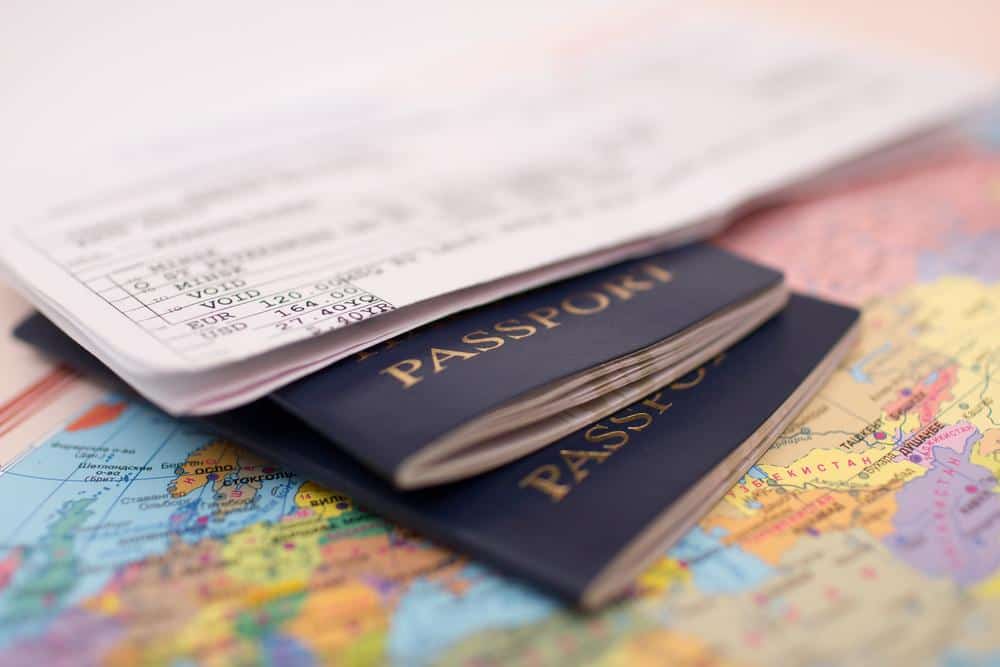
Navigating the labyrinth of visas and residency can feel overwhelming, but a clear understanding of the options will simplify the process. Here’s a comprehensive look at the various visas and residency options available for U.S. citizens considering a move to Costa Rica:
Tourist Visa: The simplest and most immediate route to Costa Rica is through a tourist visa. U.S. citizens can stay in Costa Rica for up to 90 days on this visa. No special application is needed; you’ll receive it upon arrival. However, it’s worth noting that this doesn’t grant you the right to work. Moreover, many people often find themselves in the so-called “perpetual tourism” mode, leaving the country every 90 days to renew their tourist visa status. It’s not a sustainable or recommended approach for long-term living.
Pensionado Residency: Ideal for retirees, this status requires proof of a monthly income of at least $1,000 from a permanent pension or retirement fund. As a pensionado, you are not allowed to work as an employee, but you can own a company and receive dividends.
Rentista Residency: This is a suitable option for those who don’t have a pension but have a regular income from investments or savings. Applicants need to prove they will receive $2,500 per month for at least two years, or deposit $60,000 in a Costa Rican bank. Like the pensionado status, a rentista can own a company but cannot be employed.
Inversionista Residency: For those planning to invest in a business, this could be the ideal route. It requires a minimum investment of $200,000 in a business or real estate. This category does allow the holder to work, at least in connection with their investment.
Permanent Residency: This is usually granted to individuals who have a first-degree relative who is a Costa Rican citizen, such as a child or spouse. It can also be granted to those who have held another residency status for a certain number of years.
Each of these statuses has specific application processes and requirements, such as background checks, birth certificates, or proof of income, all duly authenticated. The documents will need to be translated into Spanish by an official translator.
One crucial point to note is that once you become a resident, you’ll be subject to Costa Rican taxes on your worldwide income. It’s worth seeking legal advice to understand the full implications and the potential impact on your U.S. tax situation.
Remember, the application process can be slow and may take patience. It’s advisable to engage a reputable lawyer who is familiar with the immigration system to ensure all paperwork is correctly completed and filed. This will also help you stay updated with any changes to the immigration law that may affect your application or status.
Cost of Living
When contemplating a new home, especially in a foreign country, understanding the cost of living is paramount. Costa Rica offers an attractive balance of high living standards and a cost of living that, while rising, is generally lower than in many parts of the U.S. However, it’s important to note that lifestyle choices significantly influence personal costs. Living like a local can be more economical than maintaining a typical American lifestyle.
Let’s break down some of the common expenses:
Housing: The cost of housing can vary considerably depending on location, type of housing, and whether you choose to rent or buy. For instance, a furnished two-bedroom apartment in a desirable neighborhood of San José, the capital, could range from $700 to $1,500 per month. In contrast, in more rural or coastal areas, you might find similar accommodations for $500 to $1,200 per month.
Utilities: Utility costs can also fluctuate based on location and personal usage. Electricity is pricier in Costa Rica compared to the U.S., mainly if you use air conditioning frequently, an expense that can be avoided in the cooler highlands. Expect to spend between $60 and $150 per month on electricity. Water is relatively inexpensive, generally adding an extra $10 to $25 to your monthly expenses.
Food: Groceries in Costa Rica can be surprisingly affordable, especially if you shop at local farmers’ markets (ferias) where fresh produce is plentiful and cheap. Dining out varies widely based on the type of restaurant, with a local “soda” (casual eatery) costing a fraction of a meal at a tourist-centric restaurant. As a rough estimate, a couple might spend between $400 and $600 per month on groceries and dining out.
Transportation: If you live in a city and choose not to own a car, the public transportation system is widely accessible and inexpensive, with city buses typically costing under $1 per ride. Taxis and rideshare services are also affordable. Owning a vehicle can be more costly due to higher gas prices compared to the U.S., import taxes on vehicles, and maintenance costs.
By most measures, the cost of living in Costa Rica is lower than in the U.S., but it’s not the cheapest place to live in Central America. Its allure lies in the balanced blend of affordable living, natural beauty, safety, and convenience, which is difficult to match. It’s essential to calculate your potential costs based on your lifestyle preferences and to visit the country first to experience daily life before making a long-term commitment. You’ll find that the allure of Costa Rica extends far beyond the fiscal aspect, reaching into the realms of enriched living and personal well-being.
Real Estate

The real estate market in Costa Rica is as diverse as its breathtaking landscapes. From coastal retreats bathed in sunshine to tranquil mountain abodes nestled amid lush greenery, there’s a perfect slice of paradise for everyone.
High-demand areas like San José, the vibrant capital city, and the tropical beach towns of Guanacaste, like Tamarindo and Nosara, have seen steady growth in real estate values over the years. Further south, the tranquil beaches of Dominical and Uvita offer a more laid-back lifestyle, with properties often carrying smaller price tags.
The central valley towns of Escazú and Santa Ana are also hotspots, especially for expatriates. These areas offer a harmonious blend of Costa Rican culture and modern amenities. For those seeking a cooler climate, the mountain towns of Grecia and Atenas provide temperate weather and stunning views.
Whether to rent or buy is a decision that depends on personal circumstances. Renting offers flexibility, fewer responsibilities, and the chance to explore different areas before settling. On the other hand, buying a property is an investment that can appreciate over time, and it offers a sense of permanence and freedom to make the space truly your own.
When it comes to purchasing real estate, Costa Rica is quite foreigner-friendly. Foreigners have the same rights as locals when buying property, with the exception of beachfront concession properties, which carry specific restrictions.
The process of buying property is relatively straightforward. Once you’ve found your dream property, a written agreement is drafted and signed by both parties. A local attorney will then perform due diligence, ensuring the property is free of liens and verifying the title. After that, the purchase funds are typically placed in an escrow account, the property is registered in the new owner’s name, and the purchase price is paid to the seller.
Engaging a reputable real estate attorney is critical to navigating the process smoothly. Also, it’s advisable to work with a certified real estate agent who understands the local market and can guide you to properties that meet your criteria and budget.
Property taxes in Costa Rica are quite low compared to U.S. standards, usually around 0.25% of the property’s registered value. However, luxury homes are subject to an additional tax.
Investing in Costa Rican real estate can be a savvy move, offering the chance to own a piece of paradise while potentially reaping appreciable returns. But it’s crucial to research, engage professionals for guidance, and, most importantly, take the time to explore the country to find the locale that sings to your heart.
Banking and Taxes
Navigating the financial landscape of a new country requires the right knowledge and preparation, so you can transition smoothly into the Costa Rican system.
Let’s delve into the details of banking and taxes in Costa Rica:
Banking: Opening a bank account in Costa Rica can significantly simplify your financial life, especially for paying utilities, receiving income, or making local transactions. However, it can also be a somewhat complex process.
As of now, to open an account, banks require a “Dimex” (Documento de Identificación Migratorio para Extranjeros) number, which you receive when you obtain legal residency. Besides, you will typically need to provide proof of income or purpose of the funds, proof of local address, and a minimum deposit.
Banking hours are often limited, online banking platforms may not be as sophisticated as their U.S. counterparts, and customer service can be slow. Wire transfers from the U.S. can be time-consuming and may incur significant fees.
Therefore, many expats choose to maintain their U.S. bank accounts for certain transactions and use Costa Rican banks for local transactions. Financial technology options such as Wise (formerly TransferWise) or PayPal can also be efficient ways to transfer money between countries.
Costa Rican Taxes: Once you become a tax resident in Costa Rica (generally, by obtaining legal residency and living in the country at least 183 days per year), you will be subject to Costa Rican taxes on your worldwide income. The personal income tax is progressive, with rates ranging from 0% to 25%.
Property taxes are generally low and the Value Added Tax (VAT) is 13% and applies to most goods and services.
U.S. Tax Implications: It’s crucial to remember that U.S. citizens are required to file U.S. tax returns on worldwide income, regardless of where they live. However, certain exclusions and credits can help to avoid double taxation.
The Foreign Earned Income Exclusion (FEIE) allows qualifying U.S. taxpayers to exclude a certain amount of foreign-earned income from U.S. taxation. For 2023, the exclusion amount is up to $108,700 per qualifying person.
The Foreign Tax Credit provides a dollar-for-dollar credit for foreign taxes paid, which can offset the U.S. tax liability.
Moreover, U.S. citizens with foreign bank or financial accounts are required to report these accounts annually through the Foreign Bank Account Report (FBAR) if the aggregate value exceeds $10,000 at any point during the year.
Due to the complexities of international taxation, it’s highly recommended to consult with a tax professional who is experienced in both Costa Rican and U.S. tax law. This will help you to understand the intricacies and ensure you stay compliant while maximizing the available benefits.
Healthcare

One of the many advantages of relocating to Costa Rica is access to its robust healthcare system, a model often hailed for its high standards and affordable costs. Costa Rica’s healthcare is a two-tier system, comprising a public universal healthcare system and a private sector.
Public Healthcare: The cornerstone of Costa Rica’s healthcare is the government-run universal healthcare system, known as the Caja Costarricense de Seguro Social (CCSS or Caja). All employed and self-employed residents, including foreigners with legal residency, are mandated to contribute to the Caja based on their income. This contribution grants them access to all medical services, including doctor’s visits, hospital stays, surgeries, prescriptions, and more, with no additional out-of-pocket cost.
However, the public system can be plagued by long wait times for non-emergency procedures and specialized treatments, mainly due to the high demand on resources. This is one of the reasons some residents also opt for private healthcare.
Private Healthcare: Costa Rica’s private healthcare sector is thriving, offering high-quality services often at a fraction of U.S. costs. Many doctors in the private sector are bilingual and have received training abroad, ensuring they are up to date with the latest medical advancements.
Private healthcare can offer faster access to treatments, a wider choice of doctors, and often more advanced or specialized treatments. Most private hospitals are located in the San José area, but private clinics can be found throughout the country.
Health Insurance Options: For access to private healthcare, various insurance options are available. You can opt for international health insurance plans, local private insurance plans, or a combination of both.
One popular local insurer is the Instituto Nacional de Seguros (INS), which offers a variety of plans that can be customized based on age, coverage choices, and deductible levels. These plans are widely accepted at private hospitals and clinics across the country.
Alternatively, international health insurance providers like SafetyWing, Cigna, Aetna, and IMG offer plans that provide coverage in Costa Rica and beyond. This can be a suitable option for those who travel frequently or want the flexibility to seek treatment in their home country.
Healthcare in Costa Rica is well-regarded, offering both a comprehensive public healthcare system and a flourishing private sector. Understanding the pros and cons of each and exploring health insurance options can help you choose a healthcare strategy that suits your needs and assures peace of mind.
Lifestyle and Culture
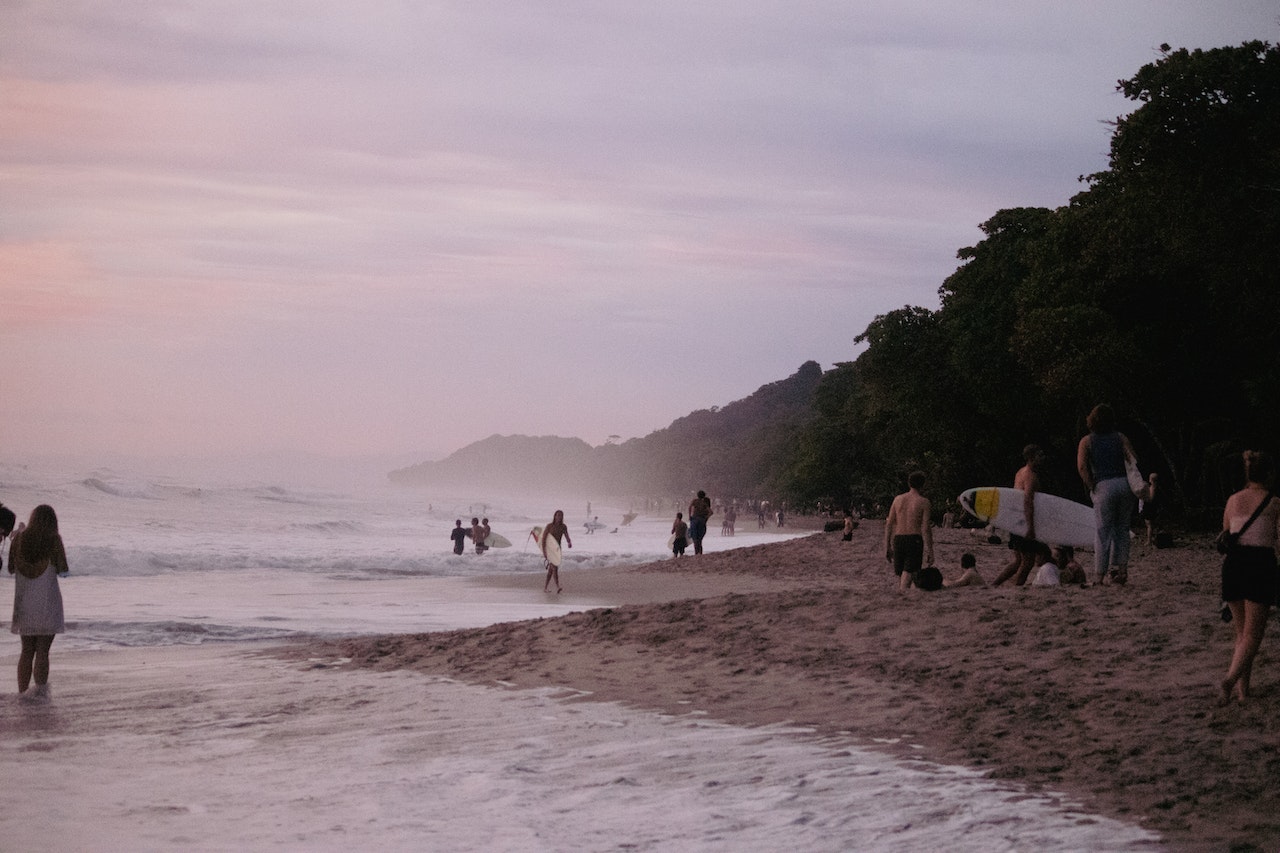
Choosing to make Costa Rica your home involves more than navigating visas, finances, and healthcare. It’s about immersing yourself in a rich and diverse culture, savoring a new lifestyle, and embracing the Pura Vida, which is at the heart of the Costa Rican mindset.
Language: Spanish is the official language of Costa Rica, and while you will find English widely spoken in tourist areas and among professionals, a basic grasp of Spanish can enrich your experience immensely. Understanding the local language opens doors to deeper connections with the people, better integration into the community, and a more profound appreciation of the culture. Numerous language schools and private tutors are available throughout the country, with options for immersive classes, conversation groups, or online courses. You’ll find that Costa Ricans are generally patient and appreciative of your efforts to learn their language.
Local Customs and Culture: Costa Ricans are known for their friendly and welcoming nature. Family and community play central roles in the Costa Rican lifestyle, and you can expect neighbors to quickly become friends. Ticos are also eco-conscious, proud of their country’s commitment to sustainability and biodiversity. Punctuality, however, is interpreted liberally in the Tico time concept, where events often start a little later than scheduled.
Costa Rica’s culture is a vibrant blend of indigenous heritage and Spanish influences, visible in the music, dance, festivals, and arts. Public holidays and festivals, like Independence Day and the colorful ox cart parade, offer fascinating glimpses into the culture.
Food, Entertainment, Recreation, and Travel Opportunities: Costa Rican cuisine is hearty and flavorful, with gallo pinto (rice and beans), casado (a typical plate with meat, rice, beans, and salad), and fresh tropical fruits featuring prominently. San José, with its bustling culinary scene, offers everything from traditional eateries to gourmet dining.
The country’s natural beauty provides endless opportunities for recreation and exploration. From hiking in the cloud forests of Monteverde, surfing the waves of Guanacaste, watching the sea turtles in Tortuguero, to relaxing in the hot springs of Arenal, there is always a new adventure around the corner.
For entertainment, there’s a range of options, from theater performances and concerts in San José, beach parties on the Pacific coast, to local community events. Costa Rica’s central location also makes it an excellent base for exploring other destinations in Central and South America.
Embracing the Costa Rican lifestyle means adopting a slower pace, cherishing nature, relishing fresh, local foods, and connecting with a warm and vibrant community. It’s a life of simple pleasures, where the focus is less on material possessions and more on the richness of experiences and relationships. This is the essence of Pura Vida – a phrase you’ll hear daily, a philosophy, and the heart of Costa Rica’s appeal.
Working and Business
A crucial part of the expatriation equation is determining how to support yourself financially. Whether you plan to find a job or start your own business, understanding the economic landscape of Costa Rica can guide you towards a successful venture.
Job Market for Expats: The job market in Costa Rica can be competitive for expats, especially for those who lack Spanish proficiency or specialized skills. However, opportunities exist in sectors such as tourism, education (especially English teaching), real estate, IT, and environmental conservation.
Several international companies have established operations in Costa Rica, offering positions that may value English-speaking candidates. Remote work for a U.S.-based employer can also be an option, with the increasing acceptance of digital nomad lifestyles.
However, it’s important to note that working in Costa Rica requires legal permission. Certain residency statuses, like the Pensionado and Rentista, don’t allow you to become an employee, although they don’t restrict you from owning a business.
Starting a Business in Costa Rica: If you’re considering turning entrepreneurial dreams into reality, Costa Rica offers a fertile ground. The tourism sector is particularly attractive, given the country’s status as a top global destination. Eco-tourism, wellness retreats, adventure sports, gastronomy, and language schools are some areas rife with potential. Real estate, agriculture (especially organic farming), and digital services are other fields worth exploring.
Legally, starting a business in Costa Rica is relatively straightforward. While the process can be bureaucratic, a competent attorney can guide you through it, ensuring compliance with registrations, permits, and licenses. Foreigners have the same rights as locals in owning a business, and you don’t need to be a resident to start one.
However, understanding the local business culture is crucial. Personal relationships and word-of-mouth recommendations often play a significant role in business success. Also, administrative processes can be slow, and a grasp of Spanish is immensely beneficial in dealing with staff, suppliers, and customers.
Labor laws in Costa Rica are quite protective of employees. If you plan to hire staff, familiarize yourself with the legal obligations regarding wages, social security contributions, working hours, vacation, and termination rights.
While working or running a business in Costa Rica comes with challenges, it can also be a rewarding endeavor that integrates you more fully into the community and possibly even fuels the local economy. As always, preparation and understanding are key to making your Costa Rican work experience a successful part of your expat journey.
Education

Whether you’re considering the move to Costa Rica with children in tow, or you’re interested in furthering your own education, understanding the local education system is essential. Fortunately, Costa Rica prioritizes education highly in its social and economic policies, boasting a literacy rate of over 97%, one of the highest in Latin America.
Public education in Costa Rica is free and mandatory for all children between the ages of 6 and 18. The system comprises primary school (grades 1-6), secondary school (grades 7-11 or 12), and higher education institutions, including public and private universities.
The school year runs from February to December, with a two-week break in July and the long holiday season over Christmas and New Year. The medium of instruction in public schools is Spanish, making them less suitable for expat children without proficiency in the language.
For families relocating from abroad, international and bilingual schools often represent a more practical choice. Costa Rica offers a variety of such institutions, most of them concentrated in the Central Valley region, close to San José. These schools offer curriculums that are either U.S., British, or International Baccalaureate (IB) based, and instruction is primarily in English, with Spanish taught as a second language. Tuition fees can vary significantly, so it’s worth researching and visiting several schools to find the best fit for your family.
In Summary
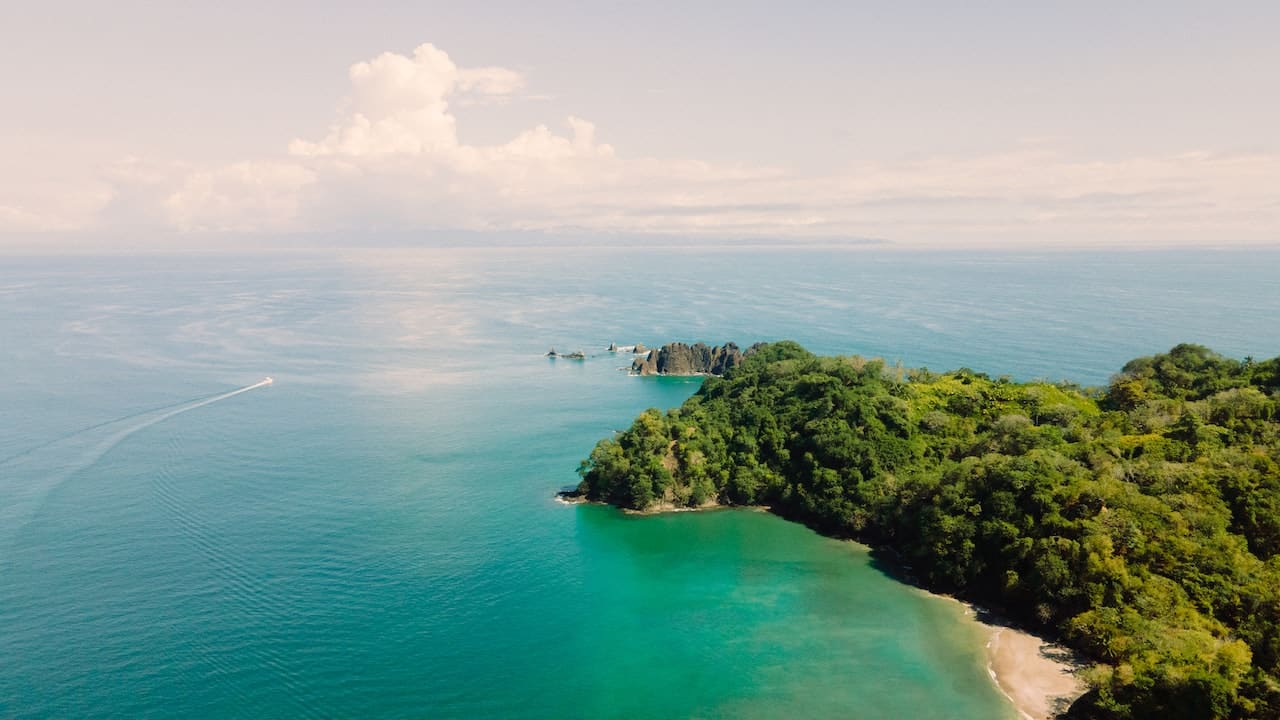
Relocating to Costa Rica from the U.S. is a significant decision, presenting both exciting opportunities and considerable challenges. A move of this magnitude requires thorough research and careful planning, but the rewards can be truly enriching: a relaxed lifestyle, a welcoming community, a favorable climate, and a chance to immerse in a vibrant culture.
Understanding the ins and outs of residency requirements, the cost of living, real estate, banking and taxes, healthcare, lifestyle, working opportunities, and education will better equip you for this adventure. Professional services, such as immigration lawyers, financial advisors, and real estate agents, can provide invaluable assistance, while connecting with other expats can offer practical advice and support.
The road to Pura Vida may not always be straightforward, but as many expats will attest, the journey is well worth it. So, arm yourself with knowledge, embrace flexibility, and look forward to the new experiences that await in Costa Rica. As the Ticos say, “¡Pura Vida!”
